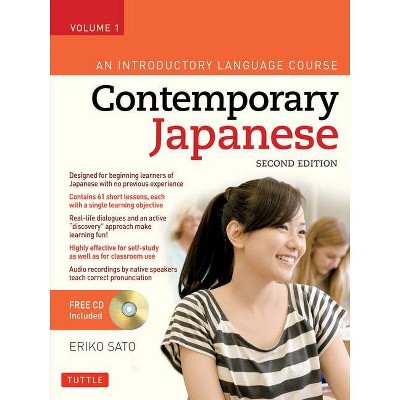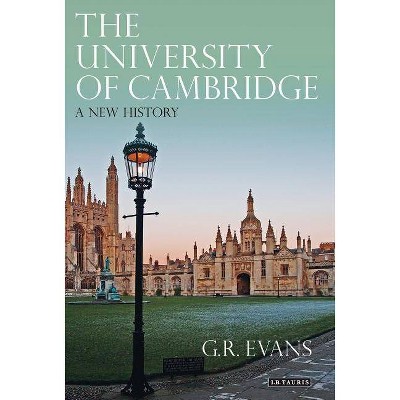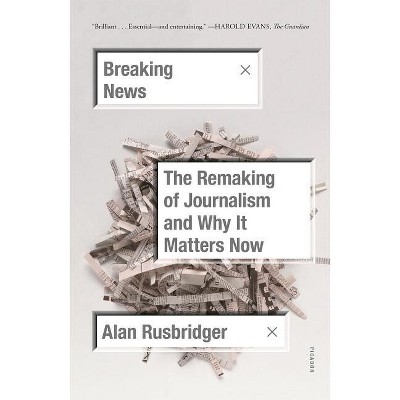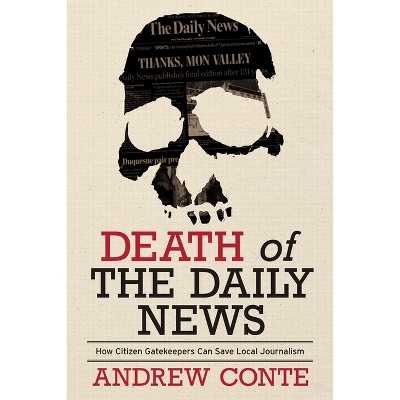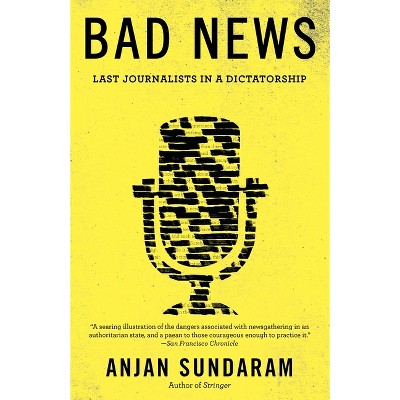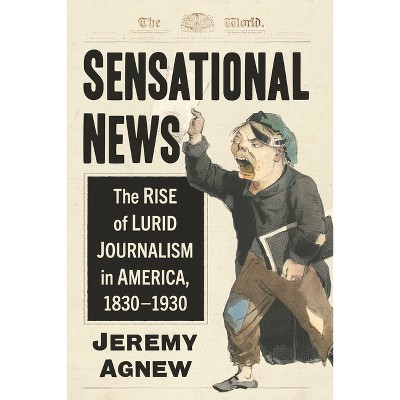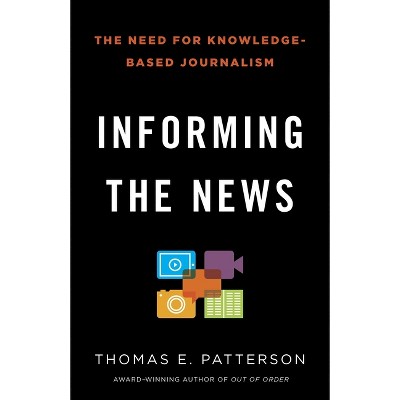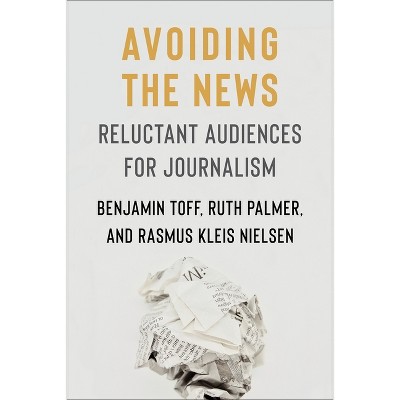Sponsored

Aggregating the News - by Mark Coddington (Paperback)
In Stock
Sponsored
About this item
Highlights
- Aggregated news fills our social media feeds, our smartphone apps, and our e-mail inboxes.
- About the Author: Mark Coddington is assistant professor in the Department of Journalism and Mass Communications at Washington and Lee University.
- 296 Pages
- Language + Art + Disciplines, Journalism
Description
About the Book
Coddington gives a vivid account of the work of aggregation--how such content is produced, what its values are, and how it fits into today's changing journalistic profession. Aggregating the News explores how aggregators weigh sources, reshape news narratives, and manage life on the fringes of journalism.lism.Book Synopsis
Aggregated news fills our social media feeds, our smartphone apps, and our e-mail inboxes. Much of the news that we consume originated elsewhere and has been reassembled, repackaged, and republished from other sources, but how is that news made? Is it a twenty-first-century digital adaptation of the traditional values and practices of journalistic and investigative reporting, or is it something different--shoddier, less scrupulous, more dangerous?
Mark Coddington gives a vivid account of the work of aggregation--how such content is produced, what its values are, and how it fits into today's changing journalistic profession. Aggregating the News presents an analysis built on observation and interviews of news aggregators in a variety of settings, exploring how aggregators weigh sources, reshape news narratives, and manage life on the fringes of journalism. Coddington finds that aggregation is defined by its derivative relationship to reporting, which colors it with a sense of inferiority. Aggregators strive to be seen as legitimate journalists, but they are constrained by commercial pressures, professional disapproval, and limited access to important forms of evidence. The first comprehensive treatment of news aggregation as a practice, Aggregating the News deepens our understanding of how news and knowledge are produced and consumed in the digital age. By centering aggregation, Coddington sheds new light on how journalistic authority and legitimacy are created--and the consequences when their foundations are eroded.
Review Quotes
A valuable text for journalists as well as public relations professionals who are often tasked with creating news.-- "Communication Booknotes Quarterly"
Provides timely insights and information about news aggregation services...A valuable resource for those studying journalism, mass media, and social media.-- "Choice"
Coddington dispels the tired argument that news aggregation by lazy online news outlets has destroyed good journalism as we know it and instead shows how aggregation is at once a historical practice as old as journalism itself while also a key element of news innovation.--Nikki Usher, author of Interactive Journalism: Hackers, Data, and Code
Coddington weaves a masterful tale of 'second-order newswork' and 'knockoff knowledge' as well as aggregation's undermining of journalistic authority. Aggregating the News is impeccably researched from within news organizations and offers the definitive statement on information aggregation in all its complexities and contexts. Analyzing news aggregation's 250-year-old history, its emergent values, and evolving constraints, this book is a critical read for all who care about journalism.--Sue Robinson, author of Networked News, Racial Divides: How Power and Privilege Shape Public Discourse in Progressive Communities
Is all digital aggregation just, as Fleetwood Mac might put it, "secondhand news"? Is public knowledge enhanced or debased by the practice of rewriting, recombining, or recontextualizing pieces of journalism? What are the professional and legal issues at stake? In this absorbing volume, Mark Coddington takes us deep into a professional community that has always been controversial but also always fascinating.--C. W. Anderson, author of Apostles of Certainty: Data Journalism and the Politics of Doubt
About the Author
Mark Coddington is assistant professor in the Department of Journalism and Mass Communications at Washington and Lee University. He is a former newspaper reporter and a contributor to Harvard University's Nieman Journalism Lab. His research has been published in Mass Communication and Society; Journalism: Theory, Practice, and Criticism; Journalism Studies; and the International Journal of Communication.Shipping details
Return details
Frequently bought together

